What’s in the Box
- Tithonia Mixed Seeds
- Sowing instructions printed on backside of Seed Packet
- Recyclable Pouch
Introduction
Transform your garden into a vibrant haven with our premium Tithonia Flower Seeds! Known for their striking orange and red hues, these easy-to-grow seeds promise to add a burst of color and natural beauty to your outdoor space. Whether you’re a seasoned gardener or a novice, our Tithonia Flower Seeds are perfect for creating eye-catching borders, attracting pollinators, and enhancing your garden’s overall appeal. With a high germination rate and low maintenance requirements, these seeds are a must-have for any gardening enthusiast. Elevate your gardening experience and bring the warmth of Tithonia blooms to your home. Shop now for a garden that blooms with life!
Tithonia, commonly known as Mexican Sunflower, is a vibrant and easy-to-grow annual flower.
Guide to the Germination Process, Soil & Fertilizer, Watering & Pest Control Requirements for Tithonia Flower Seeds
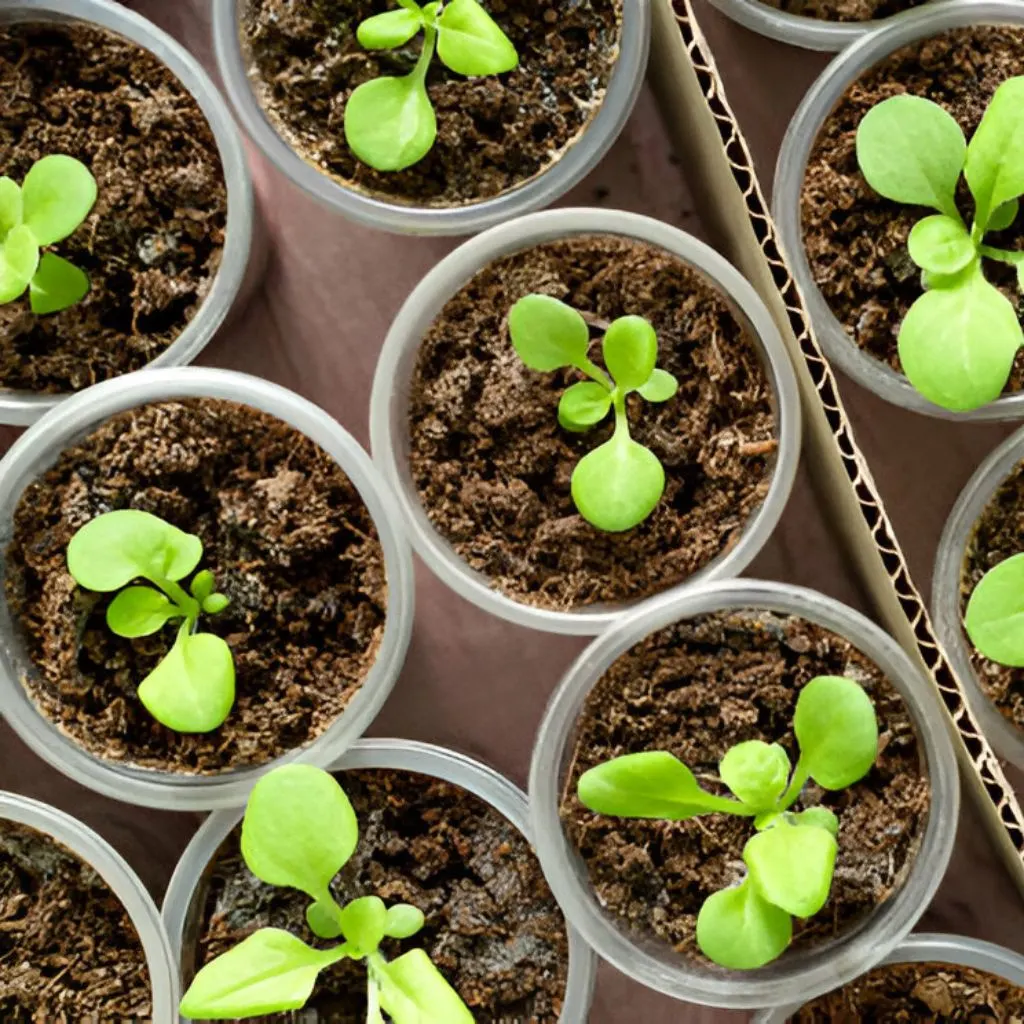
Seeds Germination Process
Seed Preparation: Tithonia seeds benefit from scarification to improve germination rates. You can lightly sand the seeds or soak them in warm water for about 12-24 hours before planting to help break down the seed coat.
Planting Medium: Use a well-draining seed-starting mix or a mixture of peat moss, perlite, and sand. Tithonia seeds do not require overly rich soil. Tithonia prefers a slightly acidic to neutral pH, ideally between 6.0 and 7.0.
Planting: Use seed trays or small pots filled with the prepared soil mix. Sow the seeds about 1/4 inch (0.6 cm) deep. Tithonia seeds need light to germinate, so don’t bury them too deep. Space the seeds about 1-2 inches (2.5-5 cm) apart to give each seedling enough room to grow.
Containers: You can start seeds in seed trays, pots, or directly in your garden bed. If using containers, ensure they have good drainage holes.
Watering: Water the soil gently to moisten it without making it soggy. Keep the soil consistently moist but not waterlogged. Water as needed to keep the soil moist but avoid overwatering. Allow the top inch of soil to dry out between waterings.
Temperature: Maintain a temperature of 70-80°F (21-27°C) for optimal germination. Tithonia seeds require warmth to sprout.
Light: Place the seed trays in a bright location or under grow lights. The seeds need light to germinate, so ensure they receive adequate light exposure.
Germination Time: Tithonia seeds typically take 7-14 days to germinate, depending on temperature and moisture conditions.
Soil & Fertilizer Requirement
Loosen Soil: Ensure the soil is loose and aerated. If you’re planting in a garden bed, loosen the soil to a depth of at least 12 inches (30 cm) and mix in organic matter like compost to enhance fertility and drainage.
Balanced Fertilizer: A balanced, all-purpose fertilizer with equal parts NPK 19:19:19 works well. This promotes overall growth and flowering.
Organic Options: Compost or well-rotted manure can be excellent alternatives to synthetic fertilizers, providing a steady release of nutrients and improving soil health.
Application: For established tithonia plants, fertilize every 4-6 weeks during the growing season (spring through late summer). Reduce fertilization during the fall and winter months when growth slows down.
Flowering: If the tithonia plant is not flowering well, it may benefit from a fertilizer higher in phosphorus, as phosphorus supports blooming. A bloom booster formula can be used occasionally if needed.
Avoid Over-Fertilizing: Too much fertilizer, especially high-nitrogen types, can lead to excessive foliage growth at the expense of flowers and can potentially harm the plant.


Watering Requirement
Regular Watering: Tithonia plants generally prefer consistent moisture. Water the plants regularly, ensuring the soil stays evenly moist but not waterlogged.
Drought Tolerance: Once established, tithonia plants can tolerate some drought, but it’s still best to water during dry spells to keep them thriving and flowering well.
Deep Watering: Water deeply to encourage deep root growth. Shallow watering can lead to shallow roots and reduced drought resistance.
Avoid Overwatering: Ensure good drainage to prevent waterlogging, which can lead to root rot. The soil should be well-draining, and excess water should be able to escape easily from the planting area.
Climate Dependent: Adjust your watering schedule based on the climate and weather conditions. In hot, dry weather, you may need to water more frequently. In cooler, rainy conditions, reduce watering accordingly.
Pest Control Requirement
Aphids: These small insects can suck sap from the Tithonia plant, leading to stunted growth and leaf distortion. They are often found on new growth and can be controlled with insecticidal soap or neem oil.
Spider Mites: These tiny pests can cause leaf discoloration and webbing. They thrive in dry conditions. Increase humidity around the plant and use miticides or insecticidal soap if needed.
Caterpillars: Various caterpillars can feed on the leaves. Hand-picking or using organic insecticides like Bacillus thuringiensis (Bt) can help manage them.
Powdery Mildew: This fungal disease appears as a white, powdery substance on leaves. Improve air circulation, avoid overhead watering, and use fungicides if necessary.
Root Rot: Caused by overwatering and poor drainage. Ensure soil drains well and avoid waterlogging. Use fungicides as a last resort if root rot develops.
Regular Inspection: Check Tithonia plant regularly for signs of pests or disease. Early detection and intervention can prevent more serious problems.


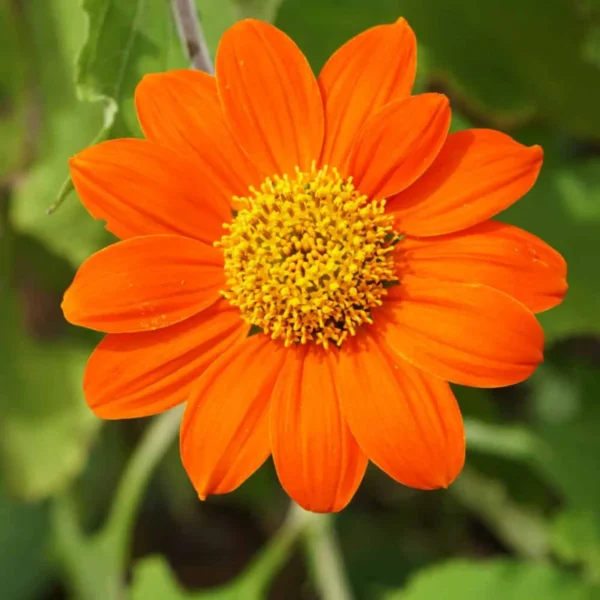
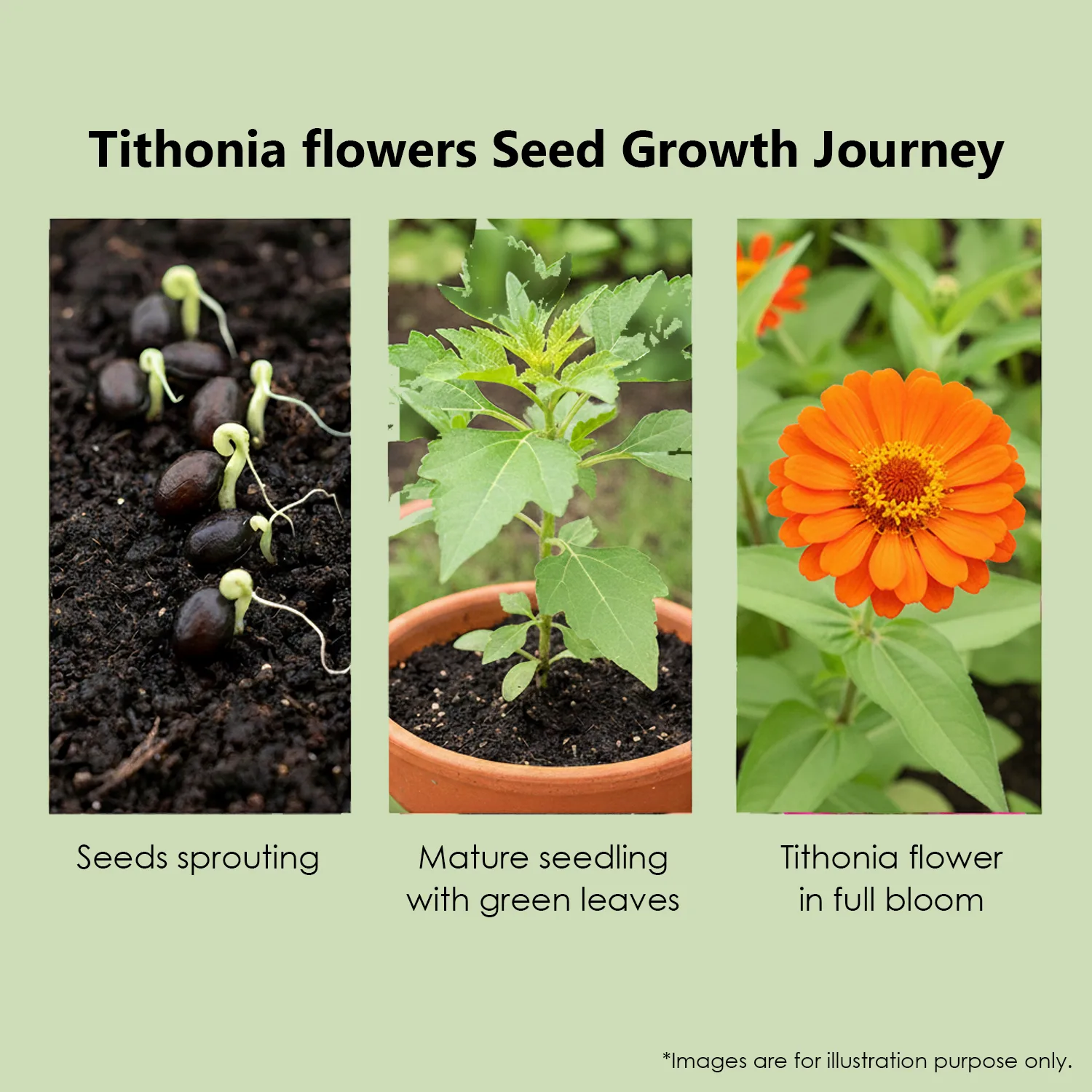
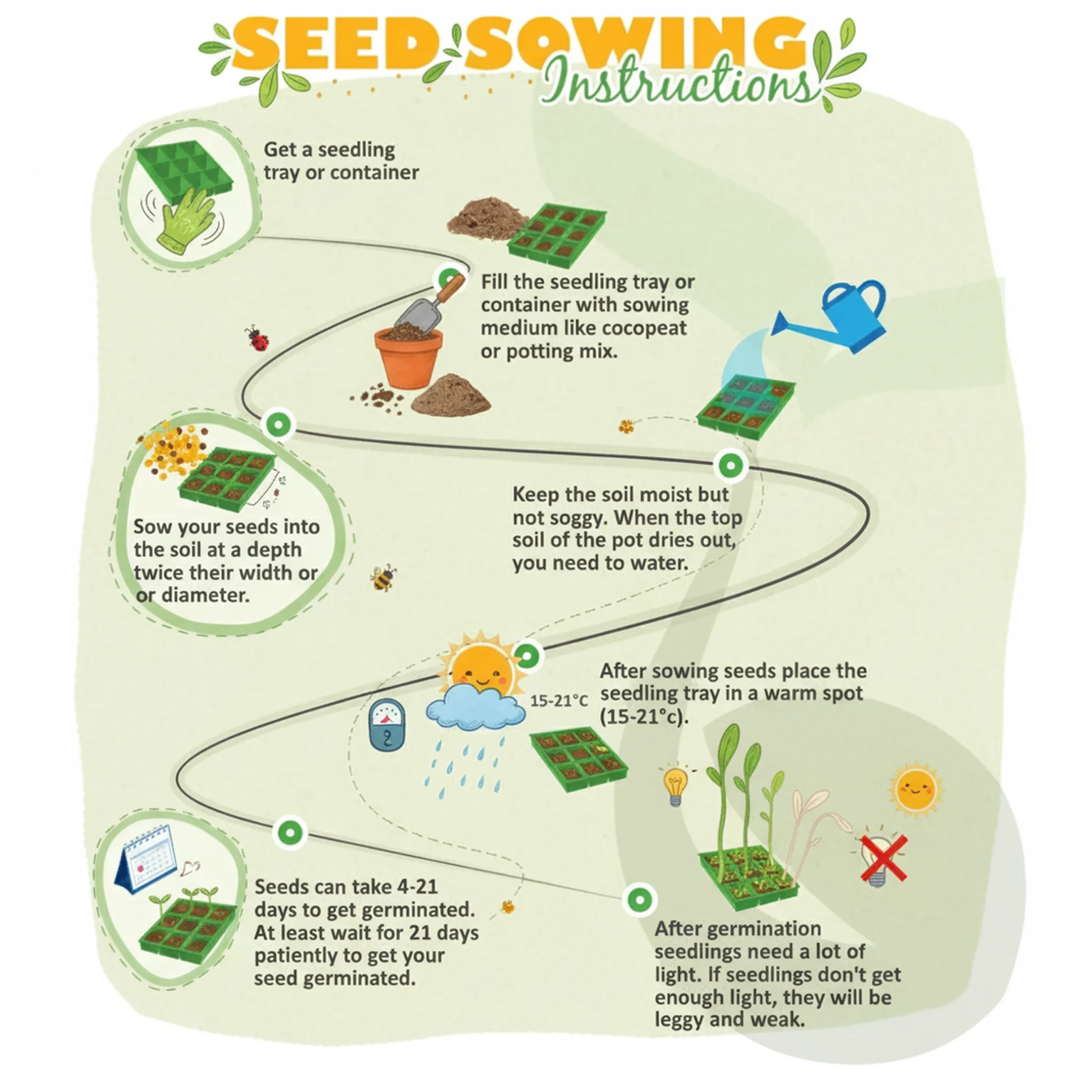
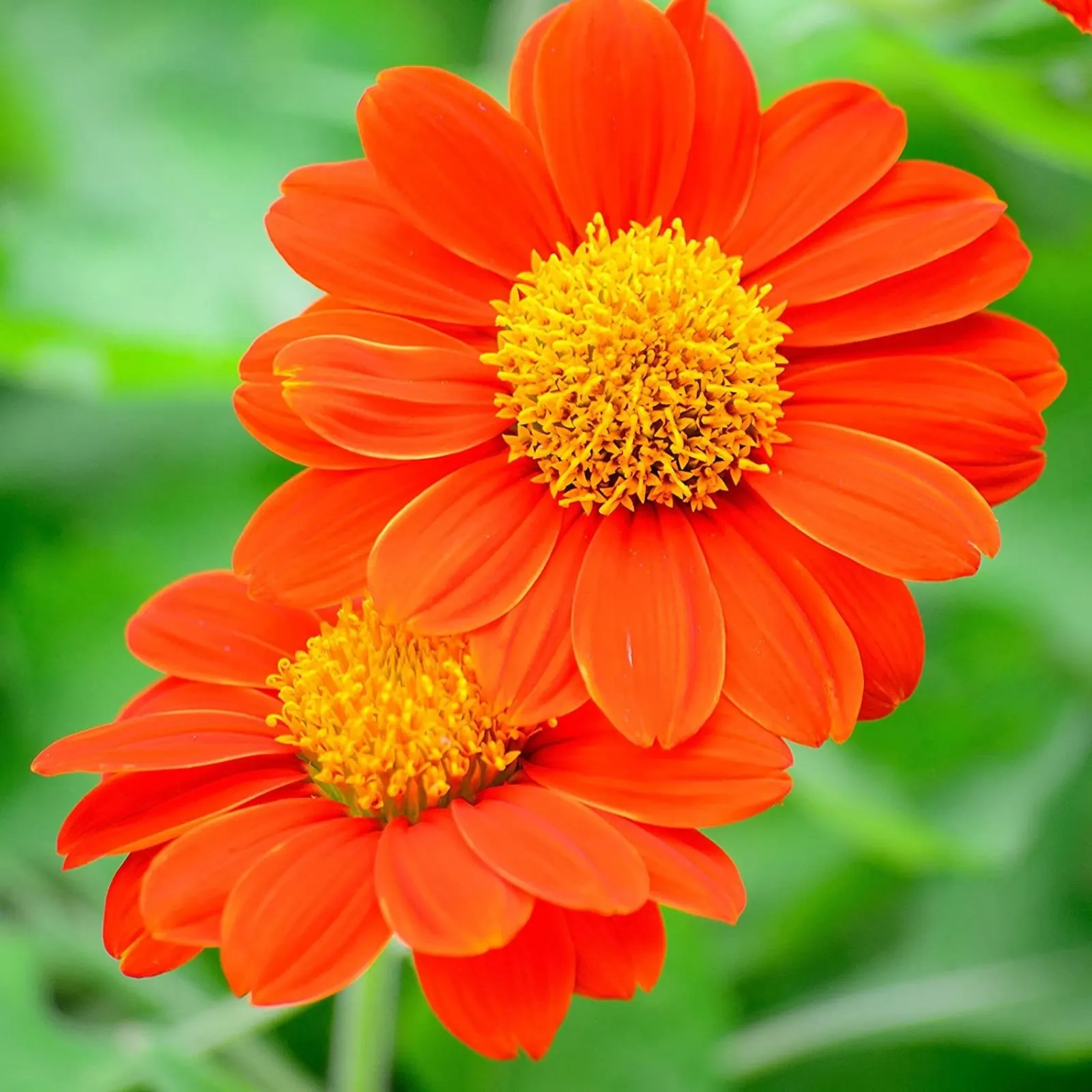
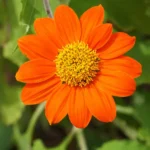

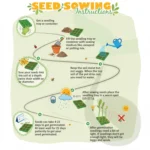
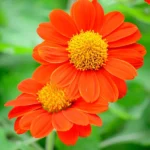

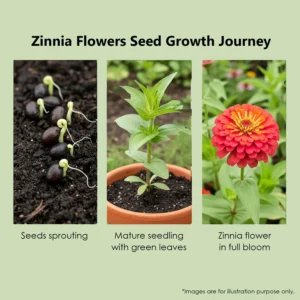

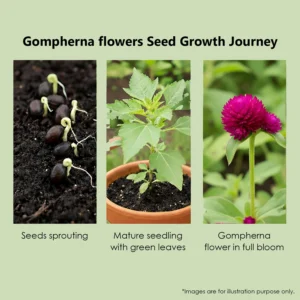
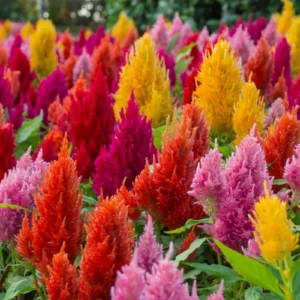
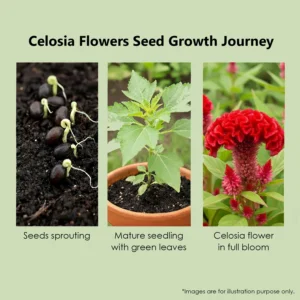
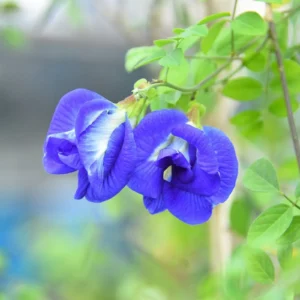
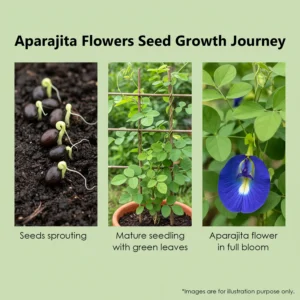
Reviews
There are no reviews yet